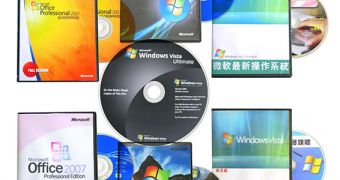As the leading software company worldwide, Microsoft is in a constant race to reduce the piracy phenomenon. This is why the company introduced initiatives such as Genuine Software Initiative, Windows Genuine Advantage, Office Genuine Advantage and even the Reduced Functionality Mode kill switch in Windows Vista. But alas the rate of failure of such projects, while specifically known only inhouse at Redmond, did prompt the company to seek additional solutions. And the most simple of them is to fuel education of intellectual property.
"Widespread access to the Internet has amplified the issue of intellectual property rights among children and teens," said Sherri Erickson, global manager, Genuine Software Initiative for Microsoft. "This survey provides more insight into the disparity between IP awareness and young people today and highlights the opportunity for schools to help prepare their students to be good online citizens."
Microsoft revealed that it is ready to take yet another crack at solving not only Windows piracy, but the overall problem via a pilot curriculum launched by the Genuine Software Initiative, designed to provide education to students on digital intellectual property. In this context, Microsoft has prepared "The Teacher's Guide to Intellectual Property Rights" as well as the MyBytes interactive Web site, both set up to educate kids about intellectual property. Microsoft even cited the statistics from a survey which found that students between 7th and 10th grades were less likely to access illegal materials on the Internet, if their were familiar with the rules of downloading and sharing content online.
"Almost half of the teenagers surveyed (49 percent) said they are not familiar with the rules and guidelines for downloading images, literature, music, movies and software from the Internet. Only one in 10 (11 percent) said they understood the rules 'very well.' Among teenagers who said they were familiar with the laws, more than eight in 10 (82 percent) said illegal downloaders should be punished. In contrast, slightly more than half (57 percent) of those unfamiliar with the laws said violators should be punished," Microsoft stated.

 14 DAY TRIAL //
14 DAY TRIAL //